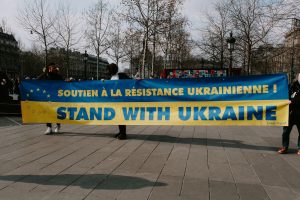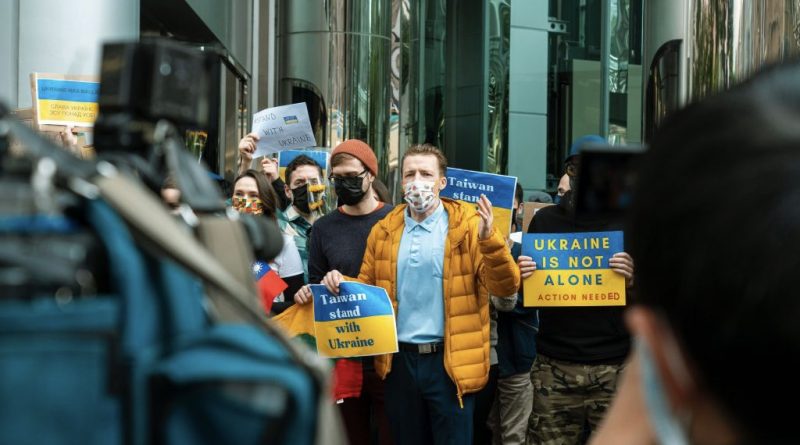The Marketing Industry Responds to the Ukraine War
Briana Lopez
Staff Writer

When a political regime is unsympathetically creating a hostile environment for many that call Ukraine home, concerns about how various brands and advertisers react to these global issues arise.
In the marketing world, familiarity rises over powerful messages that endorse purpose and encouragement to take a stand. Over these several weeks, consumers have encouraged businesses to take a stance on the Ukrainian crisis, obligating corporations to take a test on whether they are truly prepared to sacrifice profits for principles. Since Russia invaded Ukraine on February 24th, multiple corporations have taken action to speak about their efforts related to the war, prioritizing the support of staff in the region and halting business with Russian entities.
For many multinational organizations, the immediate issue is straightforward: how to cut ties to industries and companies linked to the Russian government. According to The World Federation of Advertisers (WFA) poll, 31 global brand owners representing $43bn (£32.7bn) in global ad spending show that three in four have reallocated, reduced, or cut advertising investment in Russia since the invasion started. Since Russian television is controlled and funded by the state, the WFA and its partners in The Global Alliance for Responsible Media (GARM) encourage organizations to reconsider their marketing investments in the country and ensure advertising investment does not circulate misinformation.
Across all sections, companies are acting large and small to limit ties with Russian entities. For example, after calling Russia’s invasion of Ukraine a “massively destabilizing world event,” Meta CEO Mark Zuckerberg blocked Russian state-backed media accounts in Ukraine. In addition, the European Union has undertaken the task of making sure its services can be used in Ukrainian regions. Similarly, eCommerce giant Amazon.com Inc. has stopped shipping products sold on its retail website to customers in Russia and has wholly cut off access to its video streaming platform, Prime Video. Goldman Sachs Group has announced its closure of operations in Russia, becoming the first Wall Street Bank to exit the country since first entering in 1998. In compliance with regulatory and licensing requirements, Goldman Sachs will soon terminate its business within Russia, focusing its attention on global client support in managing or closing preexisting obligations in the market to ensure the wellbeing of its business.

In continuance, several multinational corporations have begun directing their profits to humanitarian efforts both in support of the region’s staff and those affected by the initiation of the crisis. Similarly, Airbnb announced it would offer free temporary houses for up to 100,000 leaving Ukraine and has secured housing from more than 21,500 hosts in the refugee program in Europe and the United States. After closing all corporate support of its franchised owned restaurants in Russia, Burger King has committed to donating $3 million to support Ukrainian refugees as charitable donations from the parent company Restaurant Brands International to the United Nations Refugee Agency and local non-profit organizations to provide free voucher meals for refugees. Companies like PepsiCo have announced their humanitarian responsibility to continue to support the livelihoods of their 20,000 Russian associates and the 40,000 Russian agricultural workers in their supply chain as they face significant challenges and uncertainty ahead.
Russia’s invasion of Ukraine has resulted in many multinational and local organizations acting with support for the war-torn country or by haltering business with Russian entities. While it could be rather difficult to understand another’s perspective, it is essential to keep in mind that we all have the social responsibility of helping one another to protect our world better.
Contact Briana at lopezsbr@shu.edu

